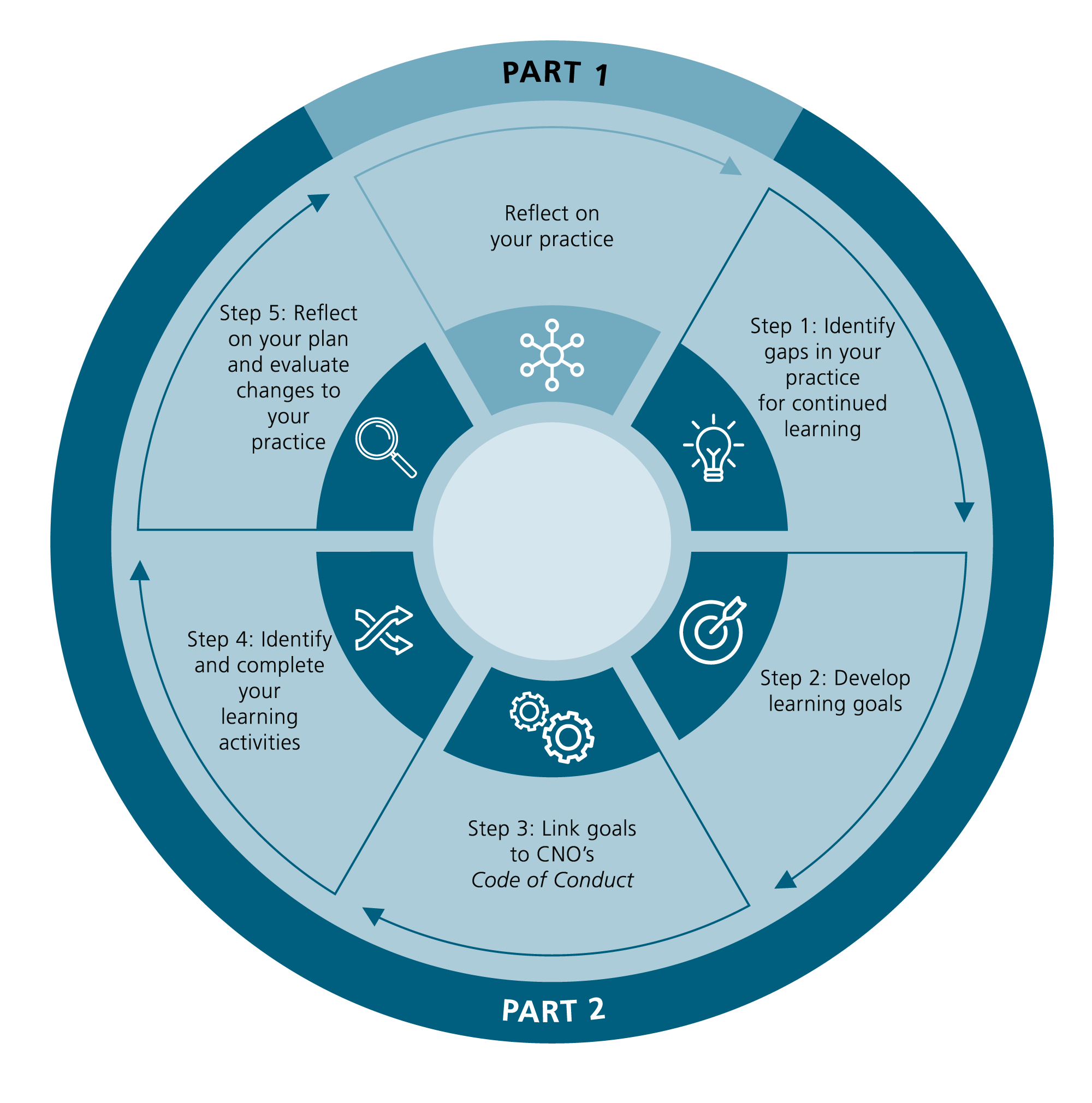QA Every Day
QA Every Day involves completing self-assessment in two parts:
- Practice reflection
- Developing a learning plan
One of the responsibilities of nurses as regulated health professionals is to reflect on their practice and identify their learning needs. This process of reflection helps nurses to update their knowledge and skills and maintain their continuing competence. A learning plan is a useful tool to guide nurses in planning and documenting their annual learning activities in a thoughtful and purposeful way.
Part 1: Practice Reflection
Practice reflection is the intentional process of critically thinking about your practice daily, to identify the strengths and gaps in your practice needing continuous learning.
When reflecting, take time to explore a situation or change in your practice. Think about what you did well and if there are areas for improvement. Considering areas of improvement helps to determine your learning gaps and what you can do to improve or enhance your practice.
A series of practice reflection questions are included below to help you reflect on your experiences and identify areas in your practice for continued learning.
1. Reflect on your practice
How did your experience this year impact your practice?
- What experiences stand out to you (for example, changes in practice, new models of care, introduction of additional regulated/unregulated care providers to the team)?
- Did you take on additional responsibilities?
- Did you experience any challenges? If so, what were they? How did you manage them?
What changed, if anything, in how you do your work?
- Provide examples of changes you noted for yourself, others (for example, clients, colleagues, students, the public), your practice setting and the overall health care system
- Why were/are these changes important?
- How did you adapt to these changes?
2. Identify gaps in your practice
What learning opportunities did you identify through your experiences that you can apply moving forward?
- What did you learn that you will continue to use throughout your practice?
3. Identify learning goals
Based on your reflection, what areas of your nursing knowledge, skill and judgment can you identify as needing professional development?
- How will addressing these areas help you maintain or improve your nursing knowledge, skill or judgment?
- Which areas in your knowledge, skill and judgment are most important to address and carry forward in your QA this year?
4. Identify learning activities
Have you identified any learning activities to help you address your learning gaps?
- Are there any organizational supports available to help you achieve your learning goals?
- What specific activities can you participate in to achieve your learning goals?
Part 2: Developing a Learning Plan
After identifying your learning gaps, you must develop learning goals to improve the areas in your practice needing further development. A learning plan allows you to write down your goals, describe the activities you plan to complete to achieve your goals and track your learning activities. CNO suggests you develop at least two learning goals to focus on each year.
Your learning plan is evidence of activities you did to help maintain your competence as a nurse. You are expected to update your learning plan regularly and keep it for two years.
QA every day resources
The following resources are available to support you in reflecting on your practice and developing a learning plan.
- Learning Plan template
- Quality Assurance: QA Every Day Guide
- Video: How to become a reflective practitioner
- Video: Value of Practice Reflection
- Video: Are your Learning Goals SMART?
Here are a few examples of what a learning plan may look like:
- NP working in a clinic
- RPN working in palliative care
- Director of Care working in long-term care
- New graduate working in an emergency room



